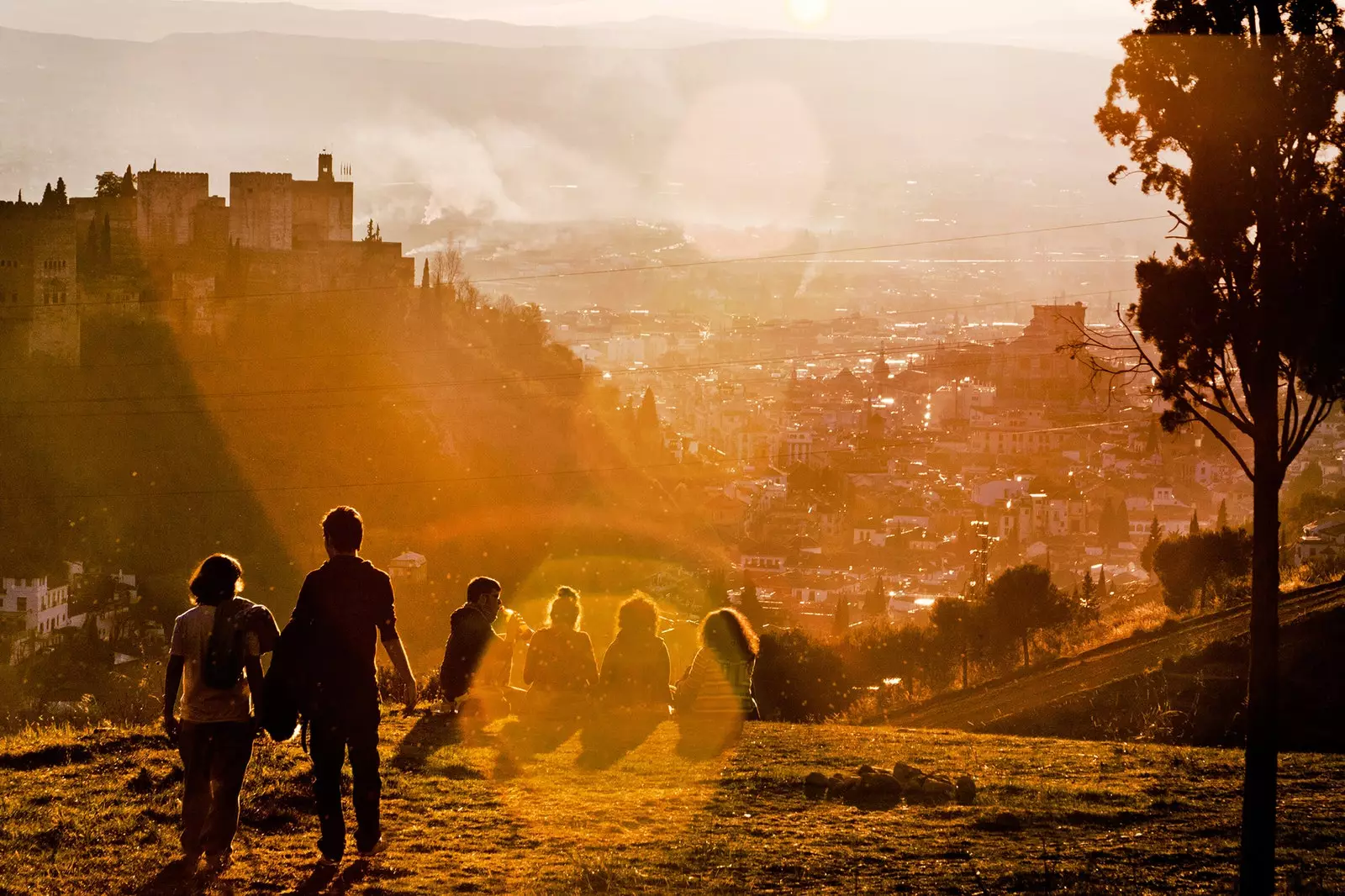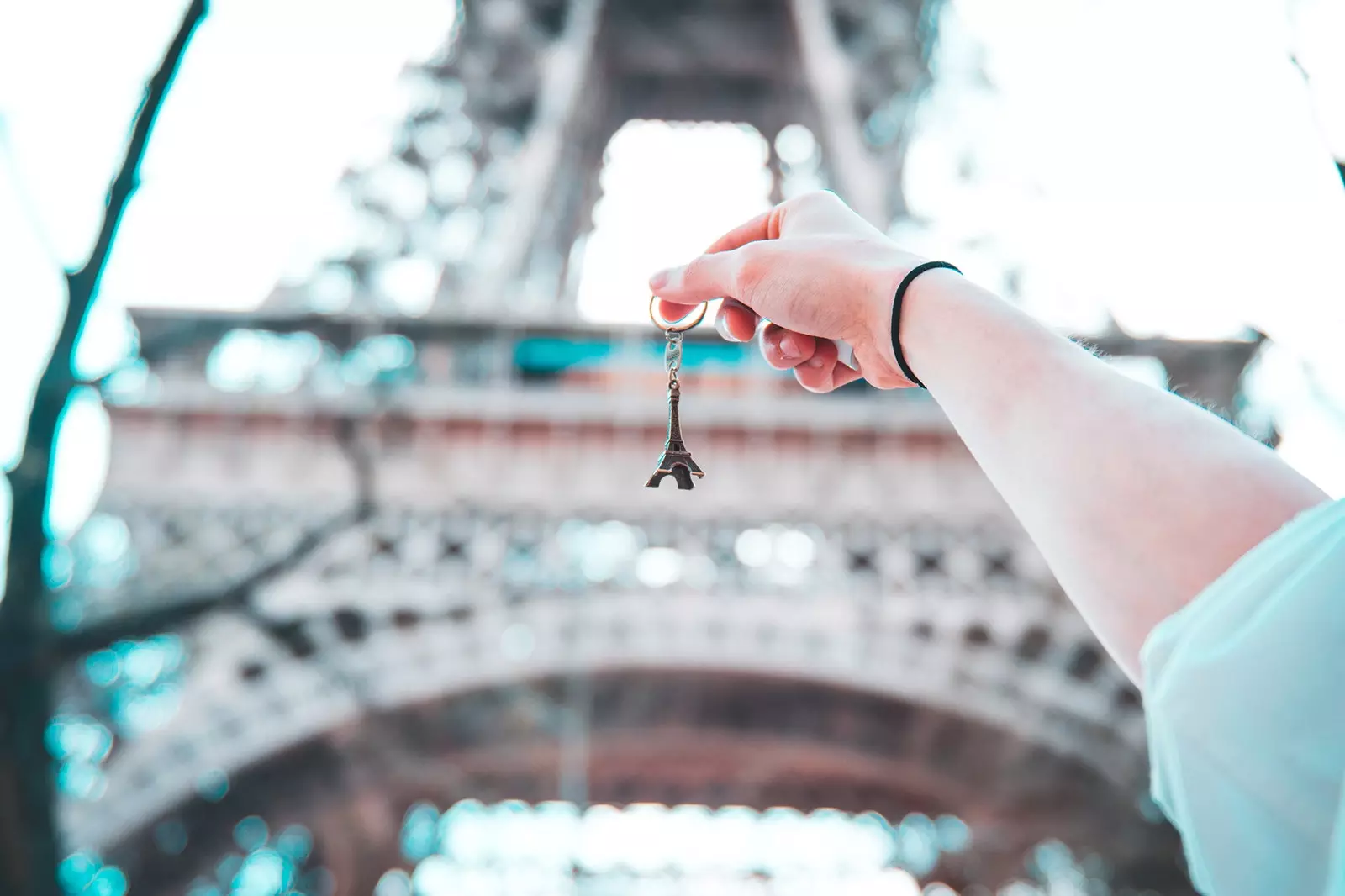
Something has the places that "illuminate" our brain...
¿ What would you say is the best souvenir? That shell you found on a hidden beach or the memory of the hours spent looking at the ocean with your loved ones by your side?
According to recent research by **Britain's National Trust** (the National Trust for Places of Historic Interest or Natural Beauty), it's those bits of memory that they have a royal hallmark.
Nino Strachey is the supervisor of the project named places that make us (an ambitious attempt to develop the idea of topophilia , or the fixation for a place, the emotional bond between a person and a place) . It is not uncommon for the National Trust to fund such research, since its mission is to protect several historical places to visit in England such as parks and stately homes.
However, Strachey stresses that the origin of this project has to do with UNESCO and her manifesto (published a decade ago) on the Preservation of the Spirit of Place.
“ The term (" spirit of the place ") is defined as the set of material elements (buildings, sites, landscapes, routes, objects) and immaterial elements (memories, stories, written documents, rituals, festivals, traditional knowledge, values, textures, colors and smells, among others) ; that is, the physical and spiritual elements that bestow meaning, value, emotion and mystery to the place ”, reads the manifesto.

Something has the significant places that illuminate certain parts of our brain
If UNESCO is correct, How and to what extent can we feel tied to a place, even before an object? , and how strong can that emotional connection become?
The research team was tasked with answering these questions - and the results were amazing. The project was divided into two phases:
The first, developed in the laboratory, involving twenty volunteers who underwent a fMRI scan of the brain. When the scans were done, Photographs were shown: some had to do with places with which the volunteers had ties strong personalities, while the others showed sentimental items.
Consequently, the emotional centers of the brain lit up with greater force when they were taught pictures of the places , rather than those of objects (the where did they get married scene , for example, had greater emotional power than his wedding rings).
There was a particular activity in two regions of the brain: left amygdala to which science currently attributes a regulatory function of our emotional responses. While the dorsolateral prefrontal cortex It is responsible for activating positive emotions and memories.
Strachey, of course, was delighted. "Find places that can fire up everyone's brain and fill them with joy and calm?" she says in wonder, "What could be better?".

Destinations that "light up" our brain
But the National Trust went further in its second phase. He involved 2,000 Britons in an in-depth survey. It will focus on how emotional and innate response to a place is expressed by our conscious minds. They were asked to choose phrases that encapsulated the reactions to your favorite places. The result?
almost the 80% chose "I feel attracted as if it were a magnet"; two thirds of respondents described a sense of calm and safety, about those very places. The answer was not limited to lifelong preferences or childhood memories: 40% of people said they felt emotions alike to new places, as to a recent vacation spot, with the same force.
The survey results did not surprise Alastair Bonnett. He is a professor and author of Beyond the map book. Bonnett defines himself as a “geographical psychopath” and, although he was not involved in the National Trust project, he has spent his career exploring our emotional and irrational connections with the places.
"We've all had that feeling of arrive somewhere knowing very little about it... and something activates in our head, something you can't describe," he asserts. "It's a reaction that makes us feel strangely at home but in a place we just arrived at," he continues explaining.
"The fact that human identity is ascribed to a place it's something we don't talk about much, in part because it's common sense”, he continues and recalls "that People will continue to fight and die for a place." she ends up explaining.
However, the relationship we have with objects and possessions is one of exchange: we can always buy and sell something for a monetary value. The same does not happen with your favorite place. “Places are never truly ours: they're a shared space, so you have to show a certain humility,” says Bonnett.
Even when the billionaires buy an island, not even with everything does it create the same sense of ownership as that of a sports car or a mansion. “You never have the feeling that it will be completely yours; places refer to our sense of sharing stories and sharing our lives,” he concludes.
So the next time you feel frustrated on a trip if you haven't bought the perfect souvenir, remember : the best and most impressive thing to take home is the memory of what you are doing at that very moment.
- Courtesy of Condé Nast Traveler USA

Souvenirs vs. experiences
